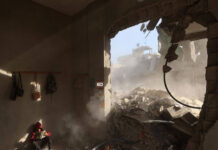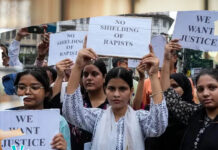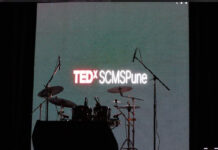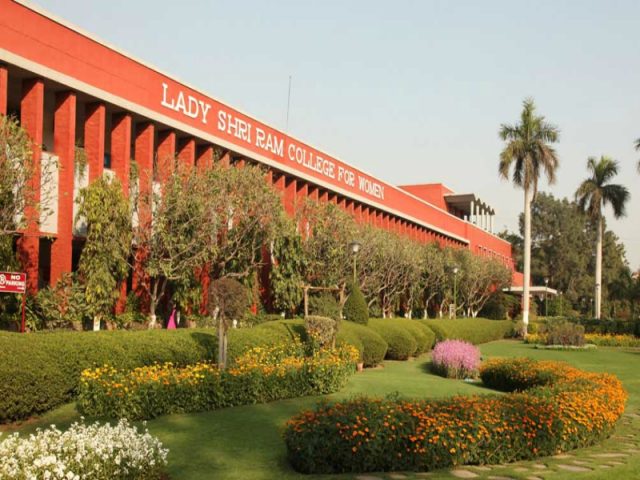The author of this article wishes to maintain an anonymous identity.
With the rightist groups coming to power, the present political conditions of India are swaying to conservative ideologies.
Generally, the ‘conservatism’ associated with rightist ideologies does not imply that it would put a bar on people’s freedom to express their views and exercise their beliefs.
But of course, this is the very scenario we are seeing in our country.
When discussions among the general public are manipulated and misguided, the educated sections of the society are supposed to see through the manipulations and encourage informed opinions amongst others.
Higher educational institutes are expected to be least tempered as they are the centres of healthy and informed political debates.
Certainly, the recent cases of JNU and Ramjas tell a very different story.
Informed political debates are clearly being suppressed in universities of the country; but what is more disheartening is the way it is done.
One such example explaining this is of Lady Shri Ram College for Women (commonly known as LSR) of Delhi University.
Marked as a premier liberal arts institution of the country, it is often tagged as an ‘empowering’ place for its students.
The empowerment comes from an environment that encourages intellectual, socially unbiased and politically informed thought without any restrictions.
This environment has been kept alive by the members of the institution through the years— students, teachers, the heads, and even the non-teaching staff display that spirit.
This essence of LSR is now fading away under an introverted attack from its own authorities.
There are silent suggestions that the influence of a new principal is harming the free and liberal environment of the place.
There have been many incidents that suggest the unwelcome changes. The changes are a part of the larger wave of rightist pressure hitting educational institutions in the country, made stronger by a principal with strong political affiliations.
According to hearsay, the new head has had strong political affiliations with BJP and RSS.
Read More: How To Get Admission In LSR (Lady Shri Ram College For Women), Delhi University
Debates and discussions about controversial topics are being suppressed in general. There now looms an indirect, informal pressure to limit the debates and discussions that take place inside classrooms.
Open lectures, debates and discussions are more severely affected as they are more open to scrutiny.
In this particular case, there have been efforts to discourage certain open discussions that were not happening inside the college premises but were organised by students of the college.
In a single year, there have been instances where talks and seminars were cancelled on the last minute, or speakers turned away from outside college when they were supposed to be delivering a talk.
Names like Kamla Bhasin, Arundhati Roy, Dilip Simeon and Krishna Menon are amongst those who were not approved or were turned away, though it cannot be verified.
Formal talks and discussions are subject to direct disapproval, but informal discussions are also being attacked.
For example, an informal talk about Dalit activist Rohith Vemula’s suicide case was organised in a park right outside college by LSR students. The posters put up for the same inside college were removed and thrown away within a few hours.
During the on-going DUTA strikes, a teacher stepped up to inform the students about the new changes being proposed, what they mean for the students and teachers and why teachers are protesting against it.
The principal could be seen displaying a passive aggressive behaviour with that small group, eager to dismiss their informal talk on Duta strikes.
There is a new censor-check on the College Magazine as well. Now, the magazine has to go through the principal’s scrutiny before being published.
This maxim was apparently imposed after an article concerning the LGBTQ was published in the magazine last year.
On one of the walls, which was earlier used for putting up posters and props for events, a graffiti of a cat wearing sunglasses was painted recently on principal’s demands.
This ‘effort to beautify the college premises’ was targeted at the same wall on which words from Pinjra Tod were written—“CAN WE QUESTION?”
The wall had been white-washed already, but the graffiti now ensures that the space can no longer be used the way it was used before by the students.
Departments, societies and the student body at large have experienced a gradual loss of decision-making power in administrative as well as monetary terms.
Permissions and budget sanctions have become the instruments of forcing departments and societies to do only what the authority thinks desirable.
Dissent amongst students over this entire matter is not explicitly visible; however, ‘the talk’ does travel from one mouth to the other whenever a new issue arises along the same lines.
Along with general discomfort about the changing environment, there is a felt inability to do anything about the issue except educate each other about the severity of the situation.
Not everybody is aware of what these subtle changes mean for the ethos of the college.
The resistance is only verbal, that too secretive, as there is no scope for a full-fledged resistance.
Image Credits: Google Images
You’d Also Like To Read:
Choosing Between Hansraj And Hindu College For B.Com/Eco. Hons. Is A Difficult Choice































